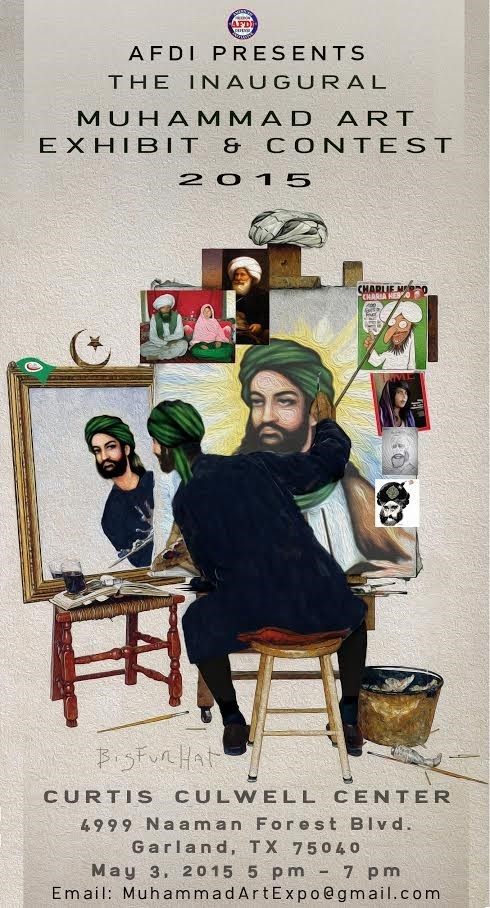This extensive Graeme Wood Atlantic piece on the Islamic State is must reading. Though many of the points Wood addresses about Koranic scriptural justifications for Islamic State actions (including its most horrific atrocities) have been covered here and in places like Jihad Watch, they have not been heretofore covered to the depth and breadth they are here in any mainstream American publication.
Some excerpts:
The reality is that the Islamic State is Islamic. Very Islamic. Yes, it has attracted psychopaths and adventure seekers, drawn largely from the disaffected populations of the Middle East and Europe. But the religion preached by its most ardent followers derives from coherent and even learned interpretations of Islam.
Virtually every major decision and law promulgated by the Islamic State adheres to what it calls, in its press and pronouncements, and on its billboards, license plates, stationery, and coins, “the Prophetic methodology,” which means following the prophecy and example of Muhammad, in punctilious detail.
Snip.
When a masked executioner says Allahu akbar while beheading an apostate, sometimes he’s doing so for religious reasons.
Many mainstream Muslim organizations have gone so far as to say the Islamic State is, in fact, un-Islamic. It is, of course, reassuring to know that the vast majority of Muslims have zero interest in replacing Hollywood movies with public executions as evening entertainment. But Muslims who call the Islamic State un-Islamic are typically, as the Princeton scholar Bernard Haykel, the leading expert on the group’s theology, told me, “embarrassed and politically correct, with a cotton-candy view of their own religion” that neglects “what their religion has historically and legally required.” Many denials of the Islamic State’s religious nature, he said, are rooted in an “interfaith-Christian-nonsense tradition.”
Snip.
According to Haykel, the ranks of the Islamic State are deeply infused with religious vigor. Koranic quotations are ubiquitous. “Even the foot soldiers spout this stuff constantly,” Haykel said. “They mug for their cameras and repeat their basic doctrines in formulaic fashion, and they do it all the time.” He regards the claim that the Islamic State has distorted the texts of Islam as preposterous, sustainable only through willful ignorance. “People want to absolve Islam,” he said. “It’s this ‘Islam is a religion of peace’ mantra. As if there is such a thing as ‘Islam’! It’s what Muslims do, and how they interpret their texts.” Those texts are shared by all Sunni Muslims, not just the Islamic State. “And these guys have just as much legitimacy as anyone else.”
All Muslims acknowledge that Muhammad’s earliest conquests were not tidy affairs, and that the laws of war passed down in the Koran and in the narrations of the Prophet’s rule were calibrated to fit a turbulent and violent time. In Haykel’s estimation, the fighters of the Islamic State are authentic throwbacks to early Islam and are faithfully reproducing its norms of war. This behavior includes a number of practices that modern Muslims tend to prefer not to acknowledge as integral to their sacred texts. “Slavery, crucifixion, and beheadings are not something that freakish [jihadists] are cherry-picking from the medieval tradition,” Haykel said. Islamic State fighters “are smack in the middle of the medieval tradition and are bringing it wholesale into the present day.”
Snip.
If al-Qaeda wanted to revive slavery, it never said so. And why would it? Silence on slavery probably reflected strategic thinking, with public sympathies in mind: when the Islamic State began enslaving people, even some of its supporters balked. Nonetheless, the caliphate has continued to embrace slavery and crucifixion without apology. “We will conquer your Rome, break your crosses, and enslave your women,” Adnani, the spokesman, promised in one of his periodic valentines to the West. “If we do not reach that time, then our children and grandchildren will reach it, and they will sell your sons as slaves at the slave market.”
Snip.
It has already taken up what Islamic law refers to as “offensive jihad,” the forcible expansion into countries that are ruled by non-Muslims. “Hitherto, we were just defending ourselves,” Choudary said; without a caliphate, offensive jihad is an inapplicable concept. But the waging of war to expand the caliphate is an essential duty of the caliph.
Choudary took pains to present the laws of war under which the Islamic State operates as policies of mercy rather than of brutality. He told me the state has an obligation to terrorize its enemies—a holy order to scare the shit out of them with beheadings and crucifixions and enslavement of women and children, because doing so hastens victory and avoids prolonged conflict.
Choudary’s colleague Abu Baraa explained that Islamic law permits only temporary peace treaties, lasting no longer than a decade. Similarly, accepting any border is anathema, as stated by the Prophet and echoed in the Islamic State’s propaganda videos. If the caliph consents to a longer-term peace or permanent border, he will be in error. Temporary peace treaties are renewable, but may not be applied to all enemies at once: the caliph must wage jihad at least once a year. He may not rest, or he will fall into a state of sin.
Wood also goes into considerable detail about the fundamentally apocalyptic nature of the Islamic State’s vision for the world. Think The Late Great Planet Earth, but not nearly so warm and funny.
While I may not agree with every point Wood makes (I rather doubt there are enough “quietist Salafis” to provide anything resembling a theological counterweight to the Islamic State among the Ummah), it’s still a very important piece that I hope will open many eyes in our political establishment as to the nature of the foe we face.
Read the while thing.
